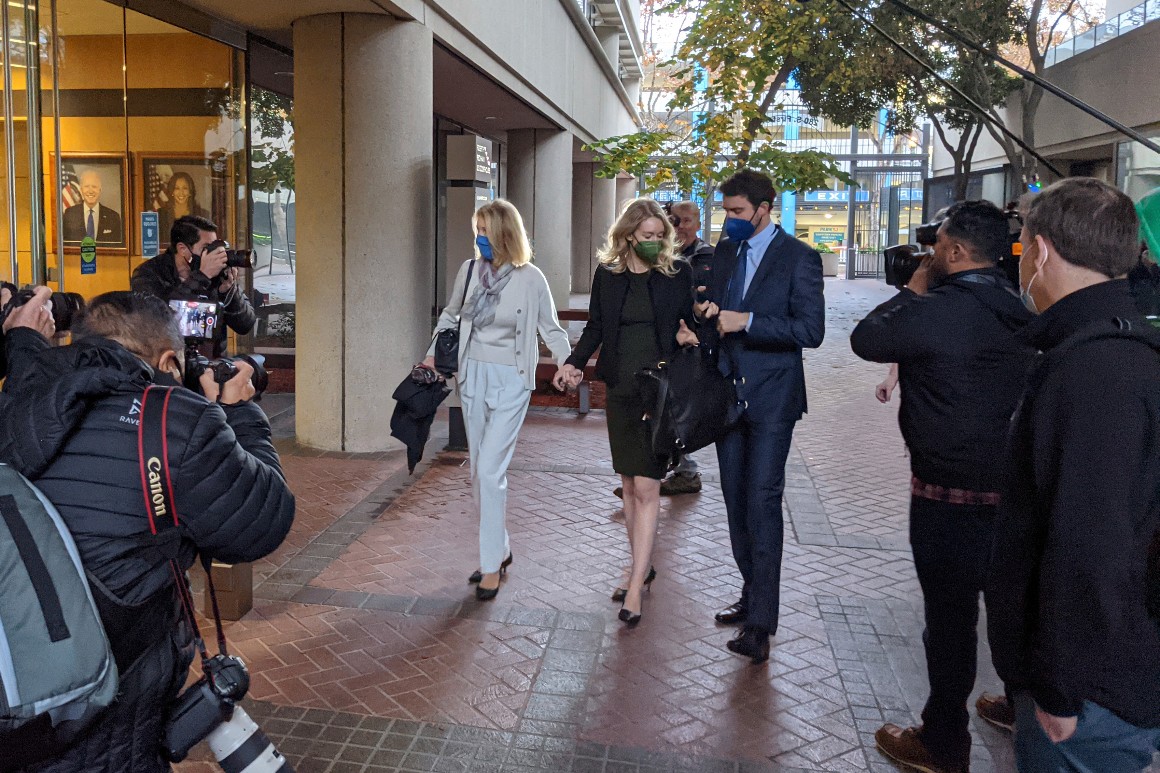U.S. District Judge Edward Davila recessed the trial for a week to allow time for refining the instructions to the jury in a complicated case what began 3 1/2 years ago with Holmes’ indictment on multiple counts of fraud. If convicted, she could be sentenced 20 years in prison.
Closing arguments are scheduled for Dec. 16-17. Depending on the duration of those arguments, the jury could get the case late in the day of Dec. 17 and continue deliberations during the week of Dec. 20.
The abrupt end of the defense’s case came as somewhat of a surprise. Holmes’ lawyers had indicated that they might call on a psychologist to discuss the allegations of emotional and sexual abuse Holmes, 37, had raised earlier in her testimony against her former lover and business partner, Sunny Balwani, 56. Holmes was just one of the three witnesses to testify for the defense, but she spent more than 25 hours on the stand since she was sworn Nov. 19.
The decision to let Holmes herself have the last word was an indication that her lawyers believed she did a compelling job telling her story, said David Ring, an attorney who has represented victims of alleged sexual abuse and has been following the trial closely.
“You want to end on a good note, and it sounded like they felt like she was their best witness,” Ring said. “You also don’t want to risk having a lot of psychological gobbly goop get into the jury’s minds, so you can end with a bang, not a whimper.”
Holmes, Theranos’ CEO for 15 years, spent some more time Wednesday blaming Balwani for neglecting to fix the blood-testing problems that he had told her he would address as the company’s chief operating officer and her most trusted adviser.
She also made it clear that Balwani was a volatile man who she tried not to “ignite” whenever he would “blow off steam through texts.” She also emphasized she wasn’t responsible for all the key decisions at Theranos from 2010 until she dumped Balwani in 2016.
That six-year stretch spanned a period when Holmes was the subject of flattering articles portraying her as a tech visionary. But a series of explosive articles published in The Wall Street Journal beginning in late 2015 revealed that Theranos’ blood-tests were producing faulty results that misled doctors and patients. John Carreyrou, the reporter who wrote those pivotal stories, sat in the back of a packed San Jose, California, courtroom throughout Holmes’ testimony.
Before Theranos melted down, Holmes and Balwani raised more than $900 million from a list of billionaire investors that included media mogul Rupert Murdoch and the Walton family behind Walmart. That while assembling a board of directors that included former Cabinet members ranging from the Nixon to Trump administrations.
Jeffrey Coopersmith, Balwani’s attorney, has vehemently denied Holmes’ attempts to blame him for Theranos’ downfall, as well as the allegations of partner abuse. He told Davila that Balwani would exercise his Fifth Amendment right against self-incrimination if he were called to testify during Holmes’ trial. Balwani is facing similar fraud charges in a trial scheduled to start next month.
But before that drama begins, a jury of 10 men and four women, including two alternates, will finally get their chance to determine if Holmes will be branded as a crook, instead of Silicon Valley sensation who revolutionized health care as she set out to do in 2003 when she dropped out of Stanford University to found Theranos.
